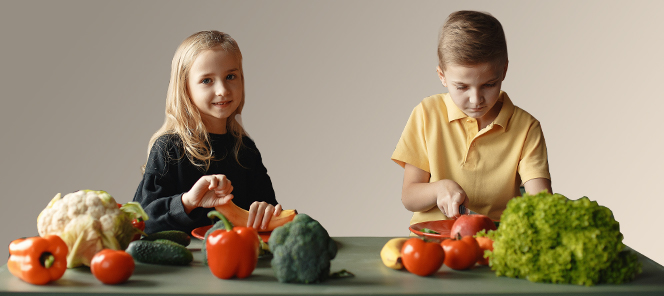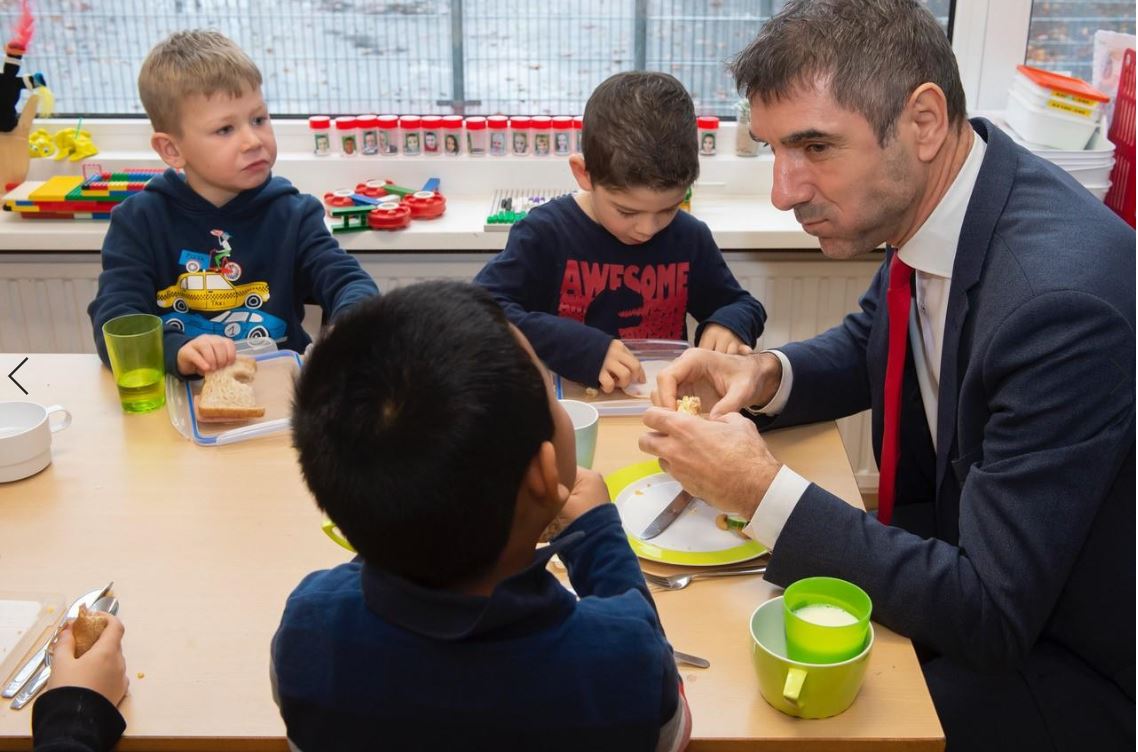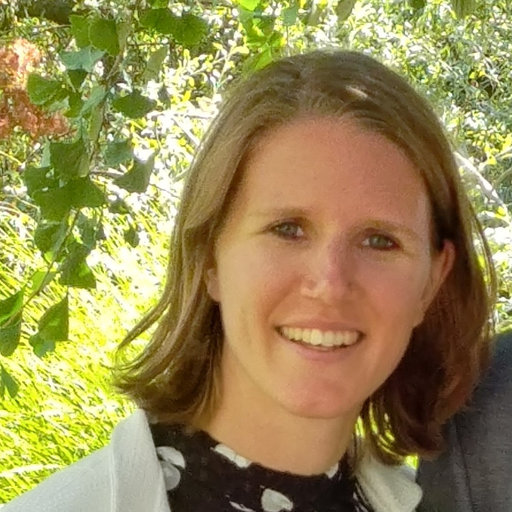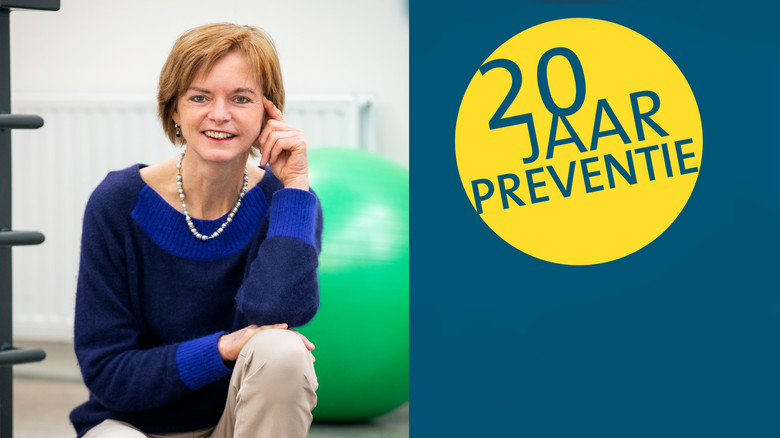Studying the Healthy Primary School of the Future

“Children have more energy and behave more socially”
In 2015, four primary schools in the Parkstad Limburg region embarked on the Healthy Primary School of the Future programme. Their goal was to become schools that don’t just educate children, but also teach them how to live healthy lives. All four so-called intervention schools introduced longer school days with more physical, social and cultural activities. Two of the schools also introduced a daily healthy lunch. Maastricht University studied the effects of the programme for four years, obtaining promising results. “The children have more energy and behave more socially”, says project leader Onno van Schayck, professor at CAPHRI.
The study is a good example of close collaboration between researchers and partners in the region, which began with a programme to restructure the school day. To realise this idea, local educational board Movare – of which the four schools participating in the Healthy Primary School of the Future programme are members – worked together with Maastricht University, the Living Lab Public Health Limburg, the South Limburg Public Health Service, and two childcare organisations. They obtained support from several organisations, including the municipalities of Landgraaf and Brunssum and local social organisations, to implement the programme.
Measurements
The study, which was co-funded by the Province of Limburg, focused on determining the effects of the Healthy Primary School of the Future programme. To this end, researchers measured the children’s weight and height and assessed their dietary and physical activity behaviours. They took baseline measurements during one week before the start of the programme. Measurement weeks were subsequently held once every year. The last one was held in 2019. Postdoctoral researcher Maartje Willeboordse coordinated these weeks. “It was a lot of fun, but also very hard work. We wouldn’t have been able to do this without the cooperation of the schools. They were so flexible. I think it’s important for us researchers to realise how valuable that is.”
Results
Measurement weeks were also held at the four control schools that didn’t introduce any changes during this time. After four years, the researchers compared the results of these control schools with those of the intervention schools. “The effects of the programme were greatest in schools that had introduced both a daily healthy lunch and more exercise. Pupils there developed different, healthier eating habits – which makes sense, as they were offered healthy food choices. But I think it’s quite remarkable that we could see the effects of this in their BMI scores after already one year. Similar studies didn’t show such clear results after one year”, says postdoctoral researcher Nina Bartelink. Pupils in the intervention schools had slightly lower Body Mass Index scores (BMI: a person’s weight in relation to their height), whereas pupils in the control schools clearly had higher BMI scores. “This is shocking”, says Onno van Schayck. “I’m so glad we were able to reverse that trend in the intervention schools.”

Healthy Primary School of the Future
- Start of the project:
- Funding provider:
- Project website:

Turnaround
Nina Bartelink did her PhD research on the Healthy Primary School of the Future programme. She assessed its process and effects by, among other things, interviewing the people involved. Her results show that the daily healthy lunch in particular caused a turnaround and set changes in motion. “Introducing both more exercise and a daily healthy lunch had the most impact. Those schools thought of themselves as healthy schools, so they gave their pupils water bottles, for example, or changed their policy for birthday treats. At the two schools that only introduced more exercise, the effects were less pronounced, though definitely still present: pupils there also had slightly lower BMI scores.”
An unexpected side effect of the programme was that the children began to behave more socially. Less bullying behaviour was observed during the course of the programme. As the researchers hadn’t asked any questions about this, they conducted additional interviews with teachers and professionals. Eating together clearly had a positive social effect, as did the skills children developed during the physical, social and cultural activities introduced in the programme. Pupils also simply had less time to engage in this kind of behaviour, as the programme added more structure to the school day.
Example
Onno van Schayck emphasises that the researchers do not yet know whether the effects of the programme are permanent. “That is still to be investigated.” Several primary schools in Limburg have already decided to follow the example of the intervention schools. The Dutch government also wants to investigate whether the programme could be rolled out nationally. Maastricht University will be involved in this investigation. “We ultimately want to achieve proportionate universalism”, says Maria Jansen, former professor of Population-Focused Health Policy at CAPHRI. “‘Universal’ here means that each child needs to be provided with proper education, a healthy lunch, and a longer school day with more room for physical, social and cultural activities. We’ll take proportionate action to help disadvantaged children by offering them extra support for maths and literacy, for example. This approach aims to reduce health and wellbeing inequalities that result from social inequalities.”
Text: Karin Burhenne
Translation: Emdash
News
-
Oue (former) VHC colleague Nina Bartelink has won the “CaRe Award 2019” for her Cum Laude PhD thesis “Evaluating health promotion in complex adaptive school systems: The Healthy Primary School of the Future”.
-
Nina Bartelink defended her PhD dissertation October 30, 2019 at Maastricht University. She was awarded cum laude. Her thesis provides insight into the results of the Healthy Primary School project, an initiative to improve children’s health and health behaviours in Primary Schools in South-Limburg...
-
Gezondheid op school is meer dan fruit uitdelen of een beweegactiviteit opzetten. Het gaat om ‘lekker in je vel zitten’ en om zaken als veiligheid en respectvol met elkaar omgaan. Maar vooral: een systematische aanpak die alles met elkaar in verband brengt. In een interview met ZonMw vertelt Maria...
-
The first results of the project "The Healthy Primary School of the Future" are more than encouraging: children have started to behave more vitally and more socially.
-
Less than 1% of Dutch children eats 150 gram vegetables per day, as recommended by the WHO. Therefore, it should become custom to eat vegetables during breakfast and lunch.
Collaborating partners
- Maastricht University (FHML, SBE, FPN, FoL)
- Provincie Limburg
- Movare
- GGD Zuid-Limburg
- Gemeente Brunssum
- Gemeente Landgraaf
- Kinderopvang Humanitas
- Maastricht Universitair Medisch Centrum
- Open Universiteit
- Sodexo
- Speeltuinwerk Limburg
- Park ter Waerden
- Kennis-As Limburg
- CZ
- Kinder Opvang Parkstad
- Topsport Limburg
- The Move Factory
- Alles is Gezondheid




